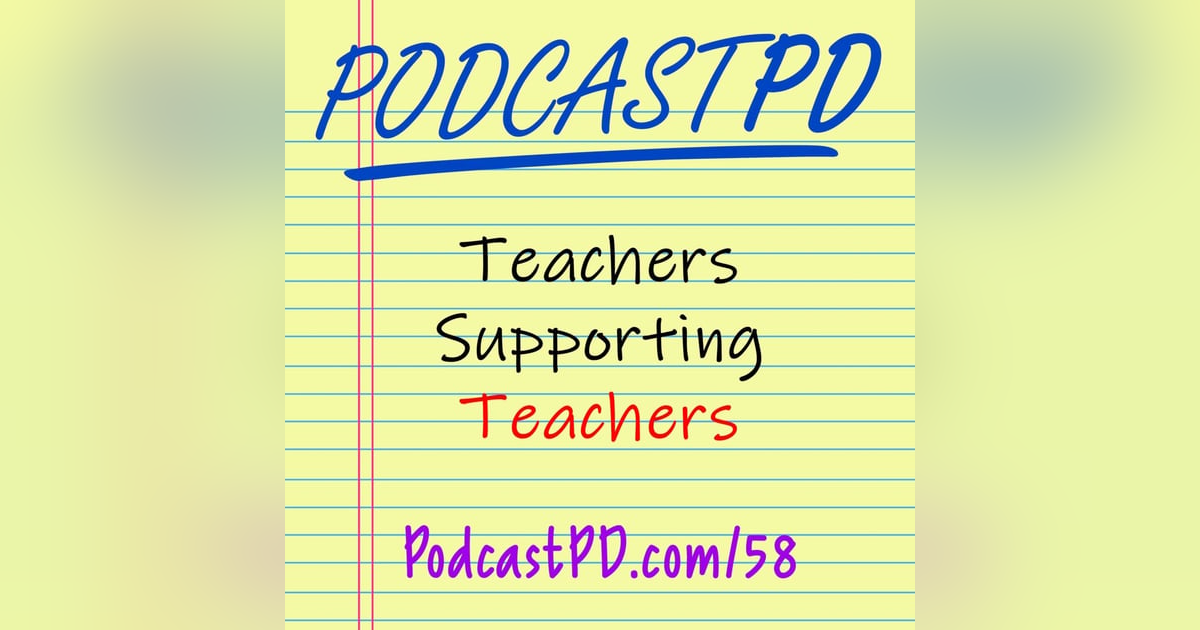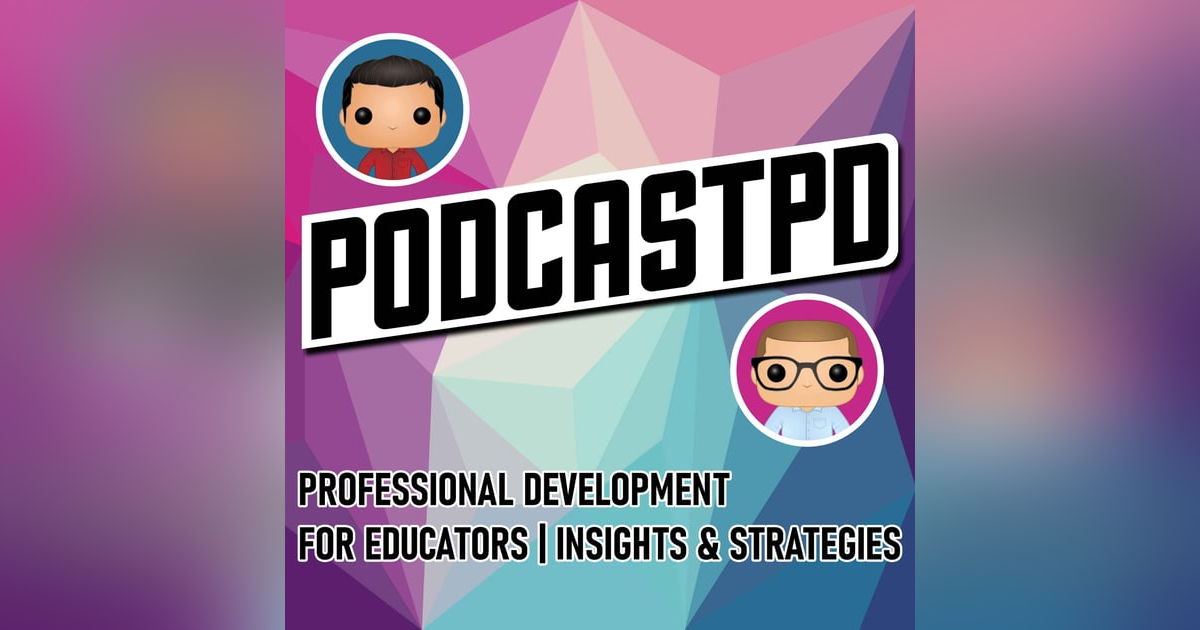Teachers Supporting Teachers: How To Be A Great Colleague - PPD058

Featured Content
Teaching is about relationships. While students, parents, and administrators all expect you to partner with them, your connections with colleagues will play the largest role in your ability to enjoy your work and grow as a professional.
Tracy from Rhode Island, our guest from episode 56, had some great insight following our episode 57 discussion about the value of Twitter for educators today.
In a vox to our PodcastPD Voxer group, she honed in on AJ’s point about building your PLN and connecting and learning from the teachers closest to you. Those would be your colleagues in your grade level, department, and your building and district.
So today we’re going to talk about ways we’ve been great colleagues, failed at being great colleagues, and we hope to inspire your next positive teaching relationship.
Strategies for Being a Great Colleague:
- Care so you can be cared for
- Give and take
- Learn from others’ experience
- Be a great listener
- Make good choices
Resources Mentioned
- Quiet Leadership: Six Steps to Transforming Performance at Work
- Digital Minimalism: Choosing a Focused Life in a Noisy World
What We’re Listening To
AJ: Still listening to Feedback (and Other Dirty Words) by M. Tamra Chandler and Laura Grealish as mentioned on episode 56.
Chris: Art of Manliness #551: Inside the Gangsters’ Code – Lou Ferrante was a mobster who worked for the Gambino crime family and made a trade out of hijacking trucks loaded with expensive goods. Eventually, the law caught up with him and he ended up in prison. There, he discovered a love for reading and writing which set off a personal transformation that led to him leaving the mafia. After his stint in jail, Lou went on to become an author and the host of a Discovery Channel documentary series called Inside the Gangsters’ Code.
Stacey: Note to Self-How to Create Good Digital Citizens – Right from wrong. We teach our kids what this means in the classroom and at home. But what about online? The next generation of tech users could be a part of much more civilized digital universe, but only if they learn how now. Manoush talks to Richard Culatta (CEO of the International Society for Technology in Education) about the five steps to creating good digital citizens, and how to turn the current online “culture shift” into something positive, respectful, and more accessible to all.
Feedback
- “Thank you @Twitter for helping me to grow as an educator and meet people like @iruntech @AJBianco @mrnesi ” ~ @tinamonte
- “Great episode of @PodcastPD on the relevance of Twitter for Educators. Is Twitter still relevant for educators? If it’s not…what is? I’d argue that the relevance hasn’t changed, but maybe the ways that we use Twitter might need to evolve.” ~ @sadieclorinda
- “Twitter is still the best PD. This year I’m teaching Digital Leadership and through Twitter, I was able to connect with @JCasaTodd and @mbfxc It’s amazing I was able to connect with the authors of the two books I read to create the curriculum for the class. @digcitinstitute” ~ @breicher
- “This needs to be a regular conversation!! I get so frustrated with Twitter as an educator anymore. Such a powerful tool, but we aren’t using it like that. #edchat” ~ @micheeaton
- “Big shout out to @PodcastPD I appreciate the honest convo about the value of Twitter. Excited to share the latest episode with #ATUDL Our group is learning about the power of Twitter.” ~ @mmatp
- Check out Mike’s podcast – Inclusive Technology 4 All
- In response to Mike “This podcast DID make me rethink how I use Twitter 2day compared 2 when I 1st joined. I share more resources now & I gain so much via twitter chats…” ~ @ksuding
- “Oh man, YES! It is still very relevant. I’ve made more connections than I ever thought I would with Twitter and I constantly benefit from the PD I can find here. It’s only as good as we make it with participation but I know so many that find it relevant.” ~ @TeachPg21
- New @PodcastPD Followers on Twitter:
- @DrSencibaugh
- @JaneKerslake
- @eyeonaxs
- @AlisaTeSelleOTR
- @LeoniaPrincipal
- @Link_pd
- @SueTranchina
See acast.com/privacy for privacy and opt-out information.






